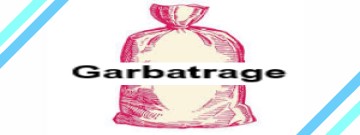
Garbatrage is a phenomenon where the stocks prices of an entire sector or industry begin to rise following a merger or acquisition in that sector. Initially, a target stock may receive a bid from an acquirer offering a large acquisition premium as the target in question is the first to be identified as undervalued in the industry. The action leads some investors to speculate that other bids may be forthcoming for additional targets. Traders and investors try to identify investment targets with similar characteristics as the original target as investments most likely to receive a bid.
At this point, a garbatrage strategy may have some merit and may be known as pre-arbing. Through analysis needs to be completed at an industry level to ascertain whether or not it is the industry that is an attractive investment or the specific characteristics of the target firm. If for a example a change in Government legislation, or a change in environmental obligations has been made, new opportunities may become apparent in a specific industry. Energy policy for instance may change with successive governments and may lead to mergers and acquisitions in the energy sector in a cyclical manner. The rules and regulations regarding fracking are an example of this.
Garbatrage Example
Additional examples may be where new areas of technology lead larger players to snap up smaller competitors rather than start their own operation. Should this be the case, the industry as a whole becomes “in play“. The initial companies in that sector are purchased with higher acquisition premiums as the market is yet to fully appreciate the demand for the sector. This is what was observed in the restaurant sector beginning in the second half of 2018. With each successive buyout, the sector as a whole rises as investors speculate on the remaining targets. As the level of investment in the sector increases and stock prices rise, the acquisition premium for each additional target declines as the stock has already moved higher. The press and media in conjunction with the investment banking industry, flanked by M&A analysts and lawyers jump on this bandwagon fueling yet further M&A activity.
It is by this point that the term Garbatrage becomes ever more applicable. Share price increases are no longer supported by rational investment analysis but become involved in a speculative situation where companies are made to fear they will miss out or will appear idle if an acquisition is not made.
Alternatively, if the takeover was just an isolated incident, and the sector has no realistic prospect of consolidation, speculating on buyouts of similar companies would also be considered Garbatrage.
